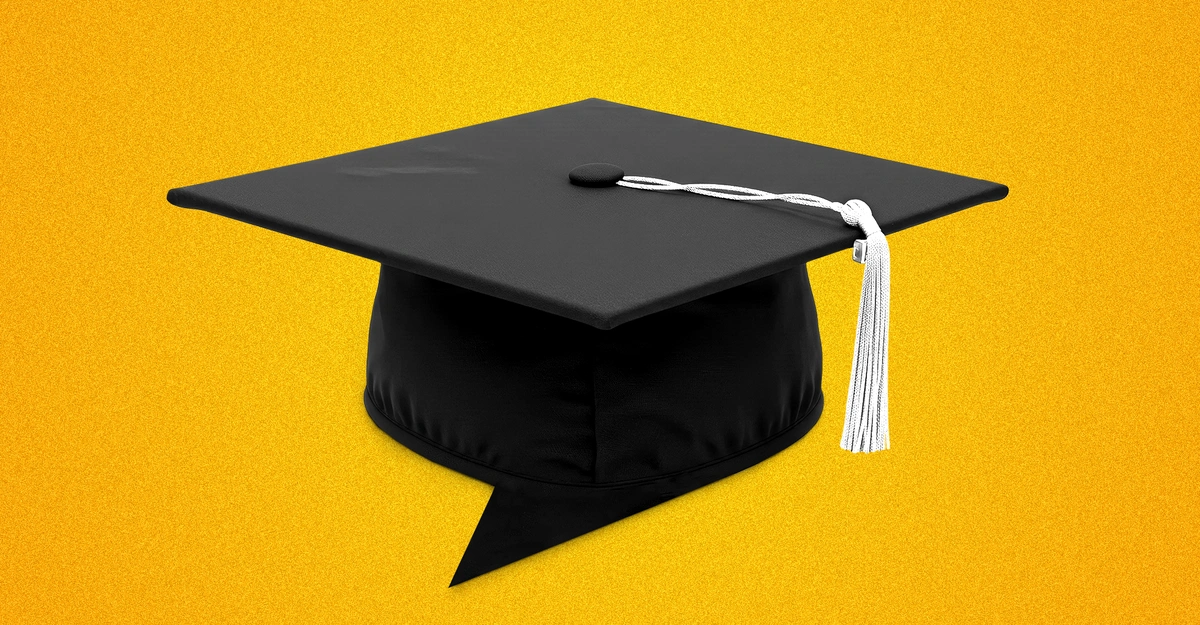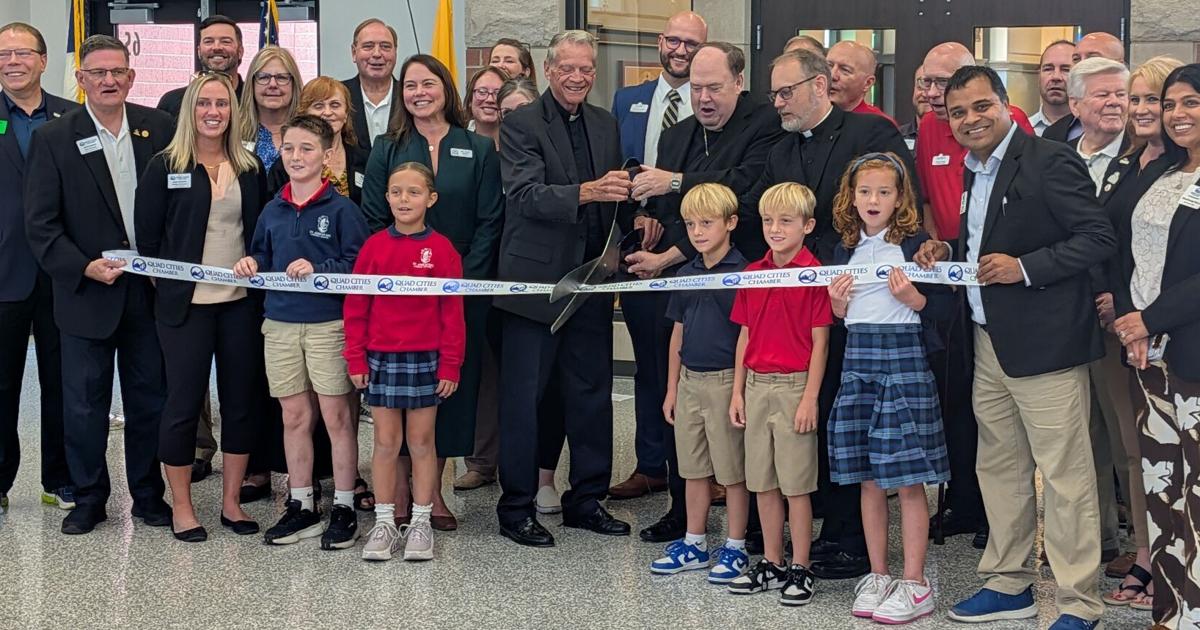
Across the country, people are questioning the value and role of higher education, and institutions—particularly the elite ones—are experiencing a crisis in public trust. On top of that, tech titans are convinced that AI will break higher education, while many observers lament its corrupting influence and ask whether the “mind-expanding purpose and qualities of a university,” as one historian of education put it recently, are gone forever.
The idea that higher education has outlived its usefulness to society, however, requires taking an astonishingly narrow view of the true purpose of the university. Higher education is not merely the transfer of knowledge. We live in an age of informational opulence; we are awash in readily available data but lacking discernment, communication skills, and empathy.
As a cognitive scientist, I have studied the negative consequences of excessive information. We are in a state of constant information overload, under assault by relentless alerts, updates, and notifications. Research shows that the cognitive burden of lots of information coming at us simultaneously can negatively affect our brains and, ultimately, our performance—especially when we are not experts in the topics we are bombarded with.
Despite the reforms that our institutions of higher education must embark on to ensure that we are teaching our students how to think—and not what to think—a four-year residential college experience remains one of the most powerful human environments for cultivating human qualities.
As Dartmouth’s president, I see this up close. Our small, tight-knit academic community promotes interdisciplinary collaboration in ways that are both intentional and serendipitous. For more than 20 years, our faculty in Jewish and Middle Eastern studies have co-taught classes and built deep trust with one another and their students. It was this trust that allowed them to hold difficult, sometimes painful, but ultimately enlightening conversations about the heinous terrorist attacks of October 7 and the brutal war in Gaza that has followed. This type of dialogue is virtually impossible to produce in online environments that are fragmented and hostile, on platforms engineered to reward outrage, where it is far too easy to dehumanize those with whom we disagree.
Instead, we need to create and seek out venues that are distinctly human for developing, testing, and debating the ideas that shape our world. Faculty leading small classes characterized by face-to-face learning and an intergenerational exchange of views are needed now more than ever. The best among them show our students how to hold contradictory thoughts simultaneously, how to argue the merits of viewpoints different from our own, and how to make sense of a complicated world in a meaningful way—something AI has yet to master. Students in turn take these conversations into late-night debates in the dining hall or dorm room, uninterrupted by the likes, reposts, and anonymous comments they’d find online.
The goal of a college or university is to impart, and allow the opportunity to practice, the deeply human power skills—critical thinking, emotional intelligence, ethical discernment, collaborative leadership—that are required to successfully and happily move into adulthood. But those skills need practice. And right now, students are getting fewer and fewer opportunities to develop them.
The pandemic disrupted face-to-face dialogue during a crucial stage of social development for the generation of students who are now enrolled in, and applying to, colleges. Social media has worsened the problem. And now generative AI risks removing real-time human engagement from the equation altogether.
My colleague Kristi Clemens, who runs a program called Dartmouth Dialogues, our initiative to promote human interaction across difference, tells a story that captures this shift. Years ago, students with interpersonal conflicts came to her office to talk things through in person, together. Then they stopped, and just started texting each other. In the past few years, text exchanges have vanished, and conflict plays out on long voice memos that students leave for each other: no interaction, no back-and-forth. The one thing most likely to repair a relationship—direct human dialogue—is gone.
Without the skill and will to listen across lines of difference, young people risk becoming more isolated, more easily manipulated, and less prepared to lead in a pluralistic democracy. If they don’t learn how to engage in these practices here, in college, they may not ever.
The problem isn’t just a lack of dialogue—it’s rising polarization. As the Dartmouth political scientist Sean Westwood has shown, disparaging those with whom you disagree as the “other” erodes trust and discourages even the attempt at conversation or engaging across the aisle. That might sound abstract, but in the age of AI, this siloing has tangible consequences. When students retreat into algorithmically curated feeds—or AI tools that reflect their own assumptions, and validate even their worst impulses—the divide deepens. Machines are good at confirming biases, real and perceived, not challenging them. We need people to do this hard work themselves, by leaving their information bubbles and interacting with one another in the flesh, not from behind a keyboard.
You might be surprised to learn that I am a tech optimist. The field of “artificial language intelligence” began at Dartmouth, after all. And in the 1960s, our researchers made computing widely accessible with the invention of BASIC. Soon after, we gave all students computers and required them to develop computer literacy—not to train programmers, but to ensure that everyone could use new tools wisely. Today, we are doing the same with AI, piloting our first-year students’ writing with AI in the classroom. And our faculty are using AI as a provocative collaborator, helping them translate ideas, explore new directions, and discover unexpected connections. As disruptive and transformative as artificial intelligence may be, the shape of our future will be determined not by machines, but by the wisdom with which we use them.
We are embracing AI, but only because we are simultaneously embracing what we are exceptionally prepared to do in our college environment: focusing on what it means to be human. That’s why, even before classes begin, every incoming Dartmouth student embarks on a hiking, canoeing, or camping trip led by an upperclass student. I will admit that having 1,200 students off in the woods with no faculty gives a college president nightly worries. But no phones, no adults, just peers learning to talk, think, and connect with people they’ve never met is worth it. It’s a tradition rooted in the belief that community begins with conversation. I hear regularly from alumni who graduated decades ago who formed friendships for life, relationships that started on these trips and shaped who they are today.
As AI accelerates, and as polarization flares around us, higher education must hold fast to its human mission. Our job is to help the next generation cultivate their uniquely human skills which, first and foremost, means being able to communicate with one another.



